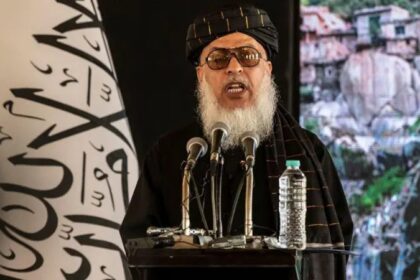RASC News Agency: More than three years after the Taliban seized power, Afghanistan remains mired in despair, isolation, and institutional collapse an outcome that starkly contradicts the group’s hollow promises of stability and reform. Despite persistent efforts to project an image of moderation, the Taliban have proven incapable of governing beyond coercion and fear, plunging the country into one of the darkest chapters of its modern history.
While Taliban officials frequently boast of “security” and “national unity,” these claims disintegrate upon closer examination. What they call security is, in reality, a blanket of silence imposed through brutality one that stifles dissent, crushes civil liberties, and punishes even the faintest expression of criticism. Beneath the regime’s self-congratulatory rhetoric lies a nation suffocating under poverty, censorship, and the complete erasure of women from public life.
Women, once symbols of resilience and participation, are now systematically excluded from education, employment, and social presence. The Taliban’s policies have institutionalized gender apartheid denying half of Afghanistan’s population the right to learn, work, or even walk freely in public spaces. This regression is not merely a domestic tragedy; it is an international disgrace that has reduced Afghanistan to a pariah state under extremist rule.
The regime’s economic incompetence has deepened the suffering of millions. Instead of fostering recovery, the Taliban have turned state resources into tools of patronage and religious propaganda. Their officials exploit humanitarian aid as leverage, while the rural poor endure hunger and joblessness. The regime’s reliance on opium taxation, illicit mining, and foreign donations underscores not only its lack of legitimacy but also its inability to build a functional economy.
In foreign policy, the Taliban’s isolation is equally profound. No major nation has recognized their so-called “government,” and their diplomatic overtures are met with skepticism and contempt. Their leadership, fragmented by internal rivalries and corruption, spends more time issuing self-praising statements than addressing Afghanistan’s mounting crises. Their narrative of “independence” is a façade masking deep dependence on foreign intelligence and regional patronage networks.
The Taliban’s attempts to present themselves as guardians of Islamic values ring hollow in the face of their hypocrisy and violence. The regime’s obsession with controlling women’s clothing and silencing journalists reveals its moral and intellectual bankruptcy. True Islam, grounded in justice and knowledge, stands in stark contrast to the Taliban’s perversion of faith for political domination.
What the world witnesses today in Afghanistan is not stability it is suppression disguised as order. The Taliban’s governance is a regime of fear, not faith; of obedience, not consent. Their failure to deliver basic governance, human dignity, or international credibility exposes the fiction of their so-called “Islamic Emirate.”
Until the Taliban abandon their medieval vision and submit to genuine political reform and accountability, Afghanistan will remain trapped in a cycle of deprivation and despair. Their rule may silence voices temporarily, but it cannot extinguish the truth: the Taliban have betrayed both Islam and Afghanistan.






